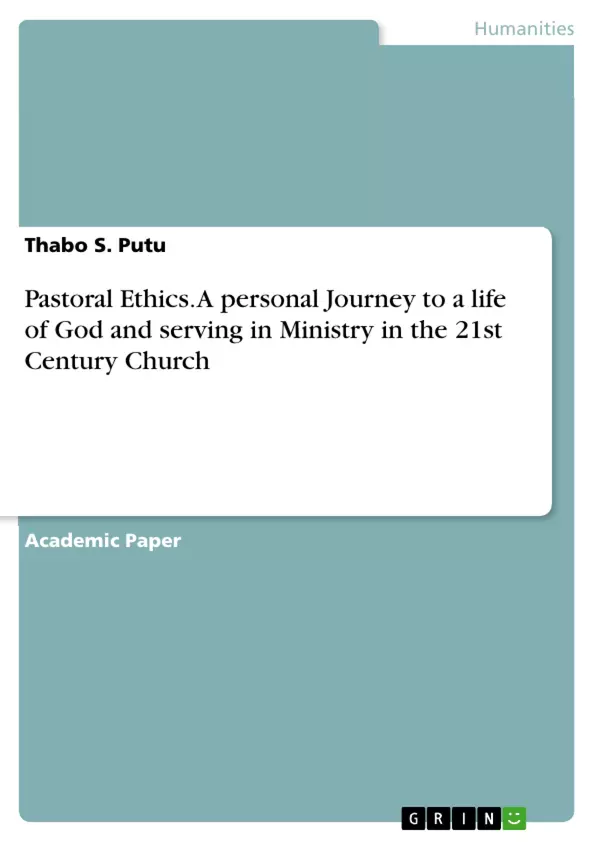In this book I will reflect on this topic Pastoral ethics to help those who may want to enter in this Pastoral or Ministry vocation particularly in this century, to have an extra understanding of what is expected of them. Ethics as part of Pastoral Ministry, is personal and centred around the individual’s relationship with God. It is based on understanding biblical commands, principles, and rules, personal values along with love, justice, peace, equality, fairness, respect for others, and relationship with the family, church, law, finance, employment and religious traditions.
Pastoral Ethics has become an imperative topic in the life of the 21st century church. For many years it was generally expected that by virtue of been a Ministers of religion, it was granted that when a person who enters into ministerial vocation, such a person would be of a high moral standard and unquestionable ethics. However this is no longer the case. The church has never been so concern about how its leaders responds to the challenges of society, which are forever changing. The church is going through serious challenges of corruption, secularism, immorality and character issues. Pastoral ministry has become demanding with more added responsibilities, which includes not only preaching, evangelism, administration, and missions, but also counselling, social ministry, nurture and fund raising, among other responsibilities.
Table of Contents
- Introduction
- Chapter 1: The Call to Ministry
- Chapter 2: A life of Integrity
- Chapter 3: The ethical framework for Ministers and Christian Leaders
- Chapter 4: Ministerial Qualifications, Character and Conduct
- Chapter 5: Ministers and Ethics in the Community
- Chapter 6: Ministers' confidentiality and strategies for maintaining confidentiality
- Chapter 8: The relationship between an individual Christian and a societal ethics
- Chapter 9: Understanding Christian Ethics
- Chapter 10: Ethics and the Bible
- Chapter 11: A guideline for Ministerial Ethics
Objectives and Key Themes
This book explores the topic of Pastoral ethics in the context of the 21st century church. It aims to provide a comprehensive understanding of what is expected from individuals entering the pastoral or ministry vocation, particularly in light of the evolving challenges faced by the church.
- The nature and importance of the call to ministry
- Ethical frameworks for ministers and Christian leaders
- The relationship between personal ethics and societal ethics
- The role of the Bible in shaping Christian ethics
- Practical guidelines for ethical conduct in ministry
Chapter Summaries
Chapter 1, "The Call to Ministry," examines the concept of God's calling for individuals to specific ministries. It explores the biblical understanding of the call, the various ways in which God calls people, and the importance of responding faithfully to His call. Chapter 2, "A life of Integrity," focuses on the importance of integrity for ministers. It highlights the need for ministers to live exemplary lives that are consistent with their teachings and to maintain high moral standards. Chapter 3, "The ethical framework for Ministers and Christian Leaders," delves into the ethical framework that should guide ministers and Christian leaders. It explores the biblical principles, values, and standards that shape ethical conduct in ministry.
Keywords
Pastoral ethics, ministry, Christian leadership, ethical framework, integrity, biblical principles, societal ethics, call to ministry, moral standards, accountability, confidentiality.
- Quote paper
- Thabo S. Putu (Author), 2020, Pastoral Ethics. A personal Journey to a life of God and serving in Ministry in the 21st Century Church, Munich, GRIN Verlag, https://www.hausarbeiten.de/document/924294


